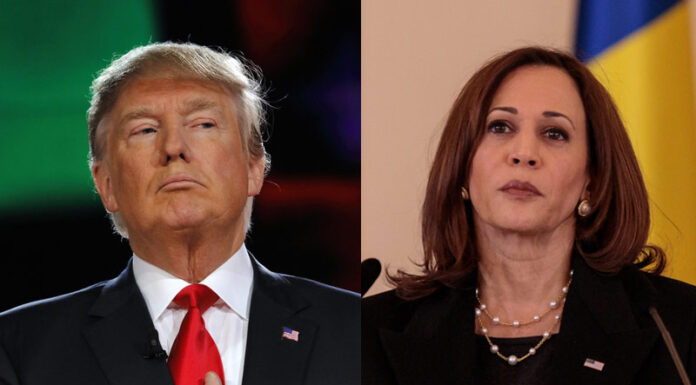On May 20, 2025, President Donald Trump called for a “major investigation” into the celebrity endorsements received by former Vice President Kamala Harris during the 2024 presidential campaign.
In multiple posts on his Truth Social platform, Trump, without providing evidence, suggested that celebrities such as Oprah Winfrey, Bruce Springsteen, and Beyoncé were allegedly compensated illegally for their endorsements of Harris.
Trump expanded his criticism to include others such as U2’s Bono, although Bono is not listed among those Harris’ team is confirmed to have paid.
“Candidates aren’t allowed to pay for ENDORSEMENTS, which is what Kamala did, under the guise of paying for entertainment,” Trump wrote in his social media posts. He suggested that these payments were a costly attempt to inflate the turnout at her campaign events.
Campaign finance records reveal that the Harris campaign made payments to production companies linked to these celebrities for services provided during the 2024 campaign. According to Federal Election Commission (FEC) filings, the Harris campaign paid Winfrey’s company, Harpo Productions, $1 million for “event production” on October 15, 2024. This payment followed Winfrey’s interview with Harris at a “Unite for America” campaign event in Detroit, Michigan, in September.
The records also show that Beyoncé’s company, Parkwood Production Media LLC, received $165,000 from the Harris campaign on November 19, 2024. This payment was made weeks after Beyoncé endorsed Harris at a campaign rally in Houston, Texas, on October 25, 2024.
FEC filings further indicate that the Harris campaign paid Springsteen’s production company, Thrill Hill Productions, Inc., approximately $75,000 for “travel and event production” on November 19, 2024. This payment followed Springsteen’s performance at a Harris campaign rally in Georgia in October 2024.
Both Winfrey and Beyoncé’s mother, Tina Knowles, who operates her daughter’s production company, have publicly refuted claims that the payments were for endorsements rather than production expenses. Winfrey stated in a social media video that she did not personally receive any payment. Knowles characterized the accusation as false, adding that Beyoncé covered her travel costs to attend the event.
Springsteen has not publicly addressed the campaign’s payment to his company. However, he has been critical of the Trump administration during recent performances in Europe, describing it as “corrupt” and “treasonous.” Trump’s response was swift, criticizing Springsteen on Truth Social as “Highly Overrated” and “not a talented guy,” while labeling him a “pushy, obnoxious JERK” for supporting “Crooked Joe Biden.” Trump hinted at potential consequences, writing, “We’ll see how it goes for him when he comes back to the U.S.” This foreshadowed his subsequent calls for an investigation into Springsteen’s endorsement of Harris.
Campaign finance experts note that the FEC has no rules prohibiting federal campaigns from compensating celebrities or influencers for endorsements, counter to Trump’s claims. These payments are not deemed illegal contributions as long as they are properly disclosed in campaign finance reports.
While the FEC governs campaign finance law, the Federal Trade Commission (FTC) manages disclosure obligations for paid endorsements in commercial settings. The FTC requires clear disclosure of paid product endorsements to consumers, but these rules pertain to commercial advertising rather than political endorsements.
When questioned about celebrity payments during the campaign, senior Harris campaign adviser Adrienne Elrod told Deadline, “We do not pay. We have never paid any artist and performer. We have never paid a fee to that person.” Elrod clarified that FEC rules necessitate campaigns to pay fair market value for event-related costs, maintaining that the campaign “followed religiously” all applicable laws.
Trump’s accusations concerning Beyoncé included claims that she received $11 million for her endorsement, a figure significantly higher than the $165,000 recorded in FEC filings. Beyoncé’s publicist dismissed this claim as “beyond ridiculous” when similar allegations emerged in November 2024.
There is no evidence to support the claim of an $11 million payment. The Harris campaign’s finance reports show no such expenditure, particularly not to Beyoncé personally (as noted, the only payment related to Beyoncé was $165,000 to Parkwood for event costs). The origin of the $10–11 million rumor appears to be misinformation that circulated on social media and even on Fox News in November 2024, when Fox anchor Harris Faulkner inaccurately claimed on air that Harris paid Beyoncé $10 million, a figure that was subsequently repeated in viral posts. The Harris campaign quickly refuted those numbers at the time.
The president’s call for an investigation comes amid ongoing tensions with several celebrities who supported Harris during the 2024 campaign. Besides criticizing Springsteen, Trump also insulted Taylor Swift, who had also endorsed Harris.
In September 2024, shortly after Taylor Swift publicly endorsed Harris, Trump angrily posted on social media, “I hate Taylor Swift.” He criticized Swift as overrated and later claimed that “since I said ‘I HATE TAYLOR SWIFT,’ she’s no longer ‘HOT?’” suggesting that his disapproval diminished her popularity. Swift had humorously labeled herself a “childless cat lady,” reclaiming an insult from Trump-allied J.D. Vance, which further irritated Trump.
The FEC has not publicly responded to Trump’s call for an investigation, and it remains unclear whether any formal complaint has been filed with the commission. The White House has not provided additional details regarding what form the proposed investigation might take or which agency would conduct it.
During the 2024 campaign, Trump himself received endorsements from several celebrities, including Kid Rock, who performed at the Republican National Convention, and country singer Lee Greenwood. No records have been found of the Trump campaign or Trump’s other entities paying these performers or their companies for campaign appearances.
Greenwood, whose song “God Bless the USA” is regularly featured at Trump rallies, stated on social media in November that he had not been compensated in “any form” by the Trump campaign or the Trump Organization for his campaign appearances.
In summary, all available evidence and direct statements from those close to Winfrey and Beyoncé indicate that neither star received any payment for endorsing Harris, and Springsteen has never suggested otherwise. Trump’s portrayal of these as under-the-table “illegal” payments to buy endorsements is not supported by the facts or by those involved.









